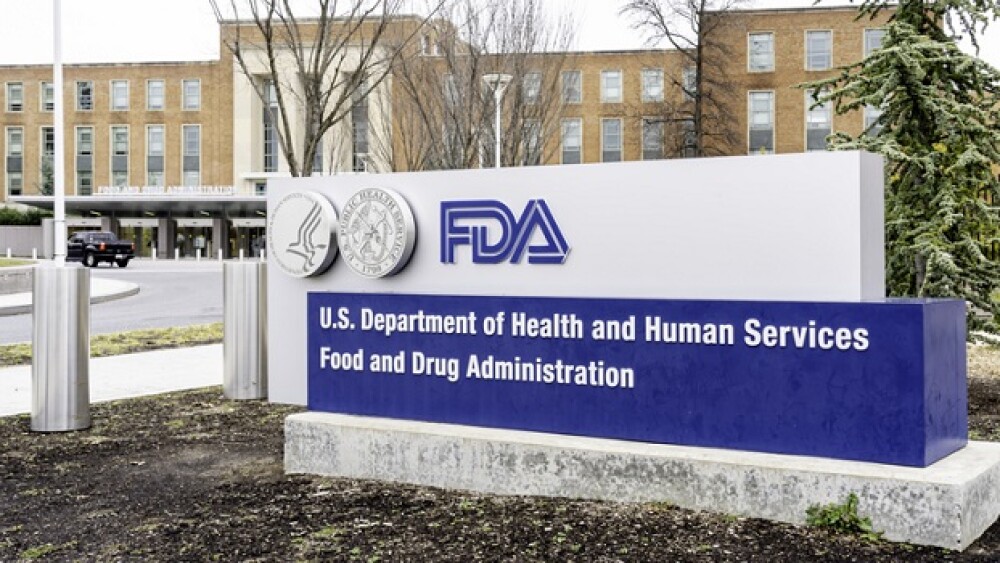With the FDA’s approval on Thursday, Dupixent can now be used for the treatment of children aged 1 to 11 years who have eosinophilic esophagitis, a chronic disease that can severely impact their ability to eat.
Pictured: The FDA’s sign outside its headquarters, DC/iStock, JHVEPhoto
The FDA on Thursday approved the use of Regeneron and Sanofi’s blockbuster therapy Dupixent (dupilumab) for the treatment of eosinic esophagitis in children aged 1 to 11 years.
The label expansion allows doctors to administer Dupixent to pediatric patients weighing at least 15 kg—and makes the anti-IL-4 and anti-IL-13 antibody the first FDA-approved treatment for eosinophilic esophagitis (EoE) in this age group, according to the companies’ announcement. The FDA in May 2022 approved Dupixent for EoE treatment in patients aged 12 years and above.
“Young children with eosinophilic esophagitis have significant unmet medical needs,” Naimish Patel, Sanofi’s head of global development, immunology and inflammation, said in a statement, adding that in the U.S. about 40% of children under 12 continue to suffer from EoE symptoms despite existing treatment options.
Thursday’s label expansion for Dupixent “brings hope” to these young patients, particularly at a critical point in their development when “struggling to eat and maintain weight directly impacts their overall nutritional intake and development,” Patel said.
Sanofi and Regeneron backed Dupixent’s pediatric expansion with data from parts A and B of the Phase III EoE KIDS trial. Part A employed a tiered, weight-based dosing approach to Dupixent and showed that at higher doses 66% of children achieved histological disease remission at 16 weeks, compared to only 3% in the placebo group.
In part B, a 36-week extended active treatment period, 53% of placebo patients from part A who were switched to Dupixent also achieved histological remission.
Dupixent, first discovered using Regeneron’s proprietary VelocImmune platform, is a fully human monoclonal antibody that targets the IL-4 and IL-13 cytokines and disables their corresponding signaling pathways. This mechanism of action has won Dupixent FDA approvals in various immune-mediated conditions, including atopic dermatitis, asthma, prurigo nodularis and chronic rhinosinusitis with nasal polyposis.
In 2007, Sanofi and Regeneron inked a major global antibody collaboration, which ultimately ended up including Dupixent.
The partners are now looking to further push Dupixent into other indications, including ulcerative colitis, eosinophilic gastroenteritis, chronic spontaneous urticaria, chronic pruritis and chronic obstructive pulmonary disease (COPD).
In November 2023, Sanofi and Regeneron posted positive data from the Phase III NOTUS trial showing that Dupixent cut COPD exacerbations by 34% over 52 weeks versus placebo. In March 2023, Dupixent likewise cleared the Phase III BOREAS trial, becoming the first biologic to demonstrate significant improvements in exacerbations and lung function in COPD.
Tristan Manalac is an independent science writer based in Metro Manila, Philippines. He can be reached at tristan@tristanmanalac.com or tristan.manalac@biospace.com.






